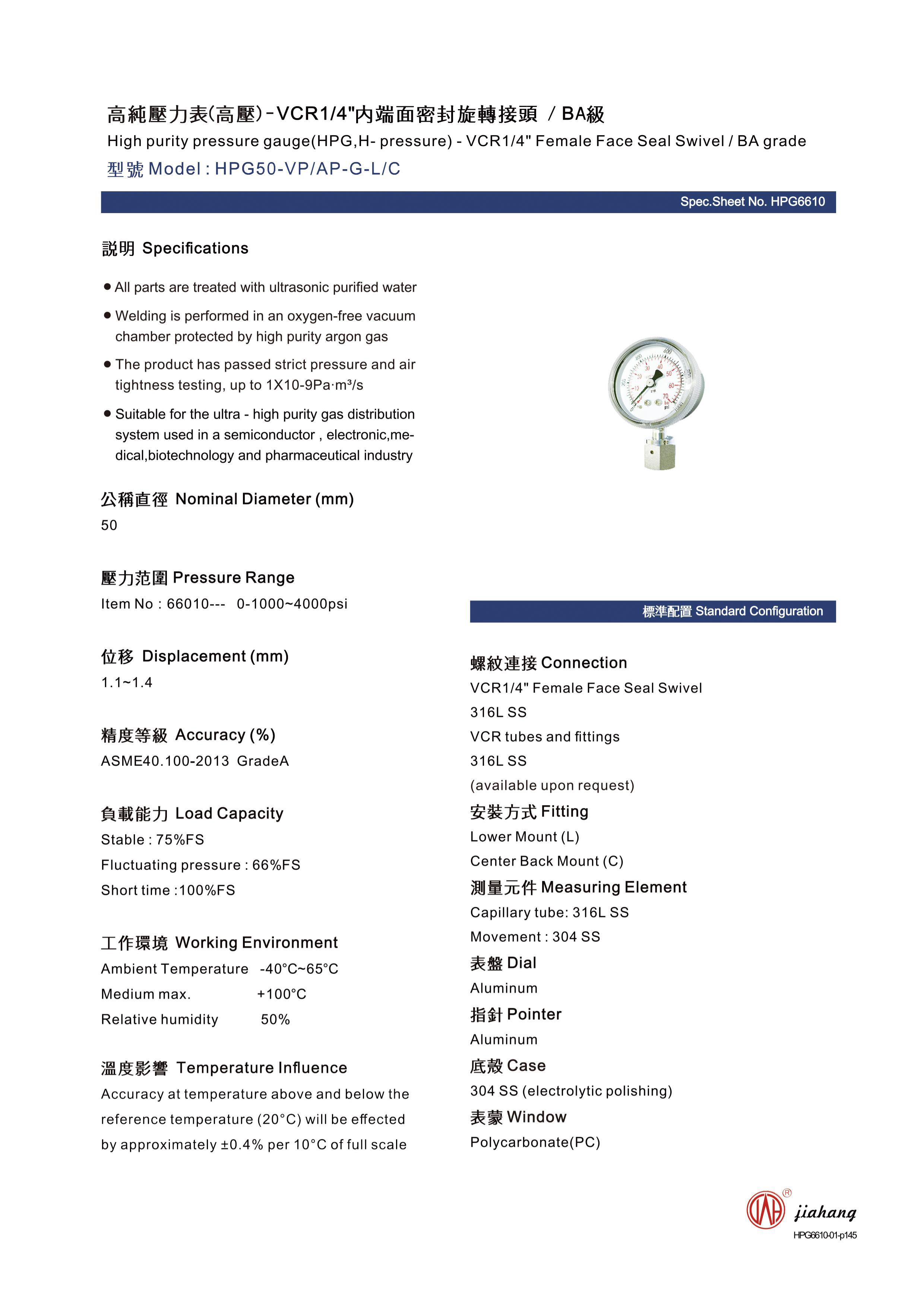
Dec . 14, 2024 00:28 Back to list
differential pressure gauge supplier
Understanding Differential Pressure Gauges A Supplier's Perspective
Differential pressure gauges are essential instruments in various industries, enabling precise monitoring of fluid or gas pressure differences across two points in a system. These gauges play a critical role in applications such as HVAC systems, process control, and fluid transfer systems. As a supplier of differential pressure gauges, it is vital to comprehend the technology behind them, the selection criteria, and the diverse applications they serve.
What is a Differential Pressure Gauge?
A differential pressure gauge measures the difference in pressure between two points in a system. The device typically consists of two pressure sensing elements connected to a display that shows the pressure differential. These gauges can be mechanical or electronic, with varying scales and measurement ranges suited for different industrial applications.
Working Principle The working principle of differential pressure gauges relies on the balance of pressure exerted by media on sensing elements. When pressure is applied to either side, the gauge converts the difference into a readable display. The most common types include Bourdon tube gauges, diaphragm gauges, and capacitive sensors.
Selection Criteria for Differential Pressure Gauges
Choosing the right differential pressure gauge is critical for optimal performance in any application. Here are several key factors to consider
1. Measurement Range It is crucial to select a gauge that can accommodate the expected pressure differential in the application. The measurement range should surpass the maximum expected differential pressure while still being sensitive enough to detect small changes.
2. Media Compatibility The materials used in the gauge must be compatible with the fluids or gases being measured. Corrosive environments may require stainless steel or more specialized materials to ensure durability and accuracy.
3. Accuracy Different applications demand varying degrees of accuracy. Determine the tolerance levels needed for your specific process and select a gauge that meets these requirements.
4. Environmental Conditions Consider the environmental factors in which the gauge will operate. Temperature, humidity, and potential exposure to chemicals can affect gauge performance. It's essential to choose a gauge that can withstand these conditions.
differential pressure gauge supplier

5. Size and Port Configuration The physical dimensions and connection type of the gauge should fit the available space in the system while ensuring seamless integration.
6. Calibration and Maintenance Regular calibration ensures accuracy over time. Consider whether the gauge allows for easy recalibration and what maintenance it requires to maintain performance.
Applications of Differential Pressure Gauges
Differential pressure gauges are versatile instruments employed across various industries. Some of the common applications include
- HVAC Systems In heating, ventilation, and air conditioning systems, differential pressure gauges monitor pressure drop across filters, ensuring efficient airflow and system performance.
- Process Control In chemical and manufacturing processes, they help monitor pressure drops across pumps, valves, and heat exchangers, pivotal for optimizing operation efficiency.
- Filtration In industries where filtration is critical, gauges provide insights into the filter’s condition. A significant pressure differential indicates that a filter may be clogged and needs replacement.
- Boilers and Heat Exchangers Measuring the pressure differential across these systems aids in evaluating performance and efficiency, ensuring safe and effective operation.
- Medical Applications In medical devices such as respirators and oxygen concentrators, differential pressure gauges monitor airflow and pressure differences, ensuring patient safety and comfort.
Conclusion
As a supplier of differential pressure gauges, it is crucial to understand the diverse needs of different industries and provide products that meet those needs. Offering a range of high-quality gauges that are reliable, durable, and easy to maintain can help businesses optimize their operations and enhance safety. By educating customers on the selection criteria and applications of differential pressure gauges, suppliers can foster a deeper understanding of this integral technology, ensuring that users can make informed choices for their specific needs. In the ever-evolving landscape of industrial technology, staying abreast of innovations will further cement the supplier’s role as a trusted partner in improving operational efficiencies and leveraging precise measurement solutions.
-
High-Precision 5 Valve Manifold Differential Pressure Gauge Suppliers
NewsApr.29,2025
-
High-Precision Diaphragm Vacuum Pressure Gauges Manufacturers & Quotes
NewsApr.29,2025
-
Omega Differential Pressure Gauges High Accuracy & Durability
NewsApr.28,2025
-
Low Pressure Differential Pressure Gauges Precision Solutions & Quotes
NewsApr.28,2025
-
Digital Diaphragm Pressure Gaauge Precision Measurement & OEM Quotes
NewsApr.28,2025
-
Differential Pressure Gauge China Price High-Accuracy & Best Quotes
NewsApr.28,2025
